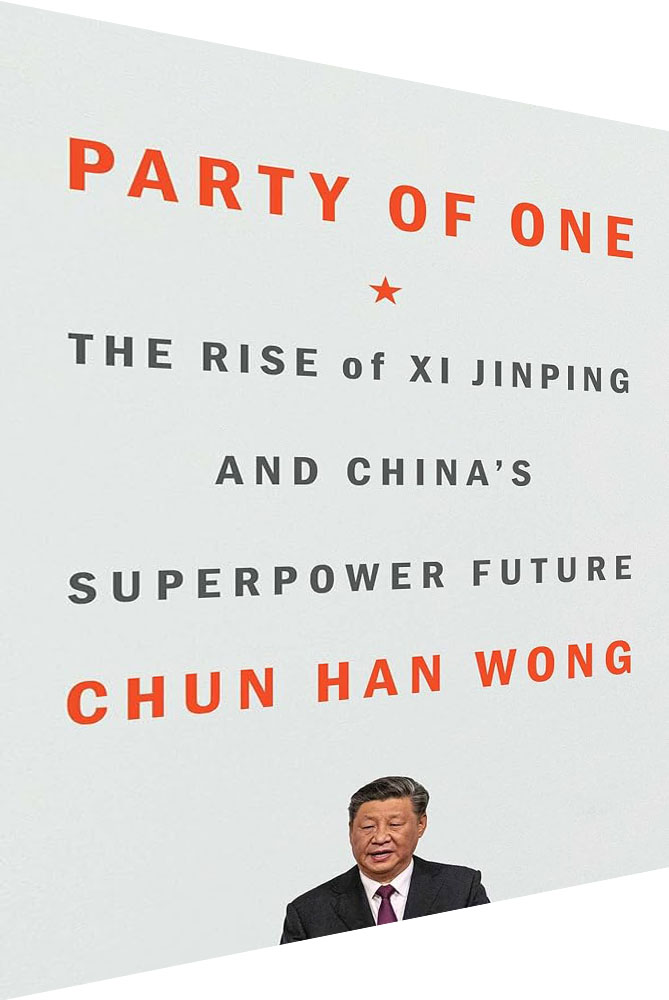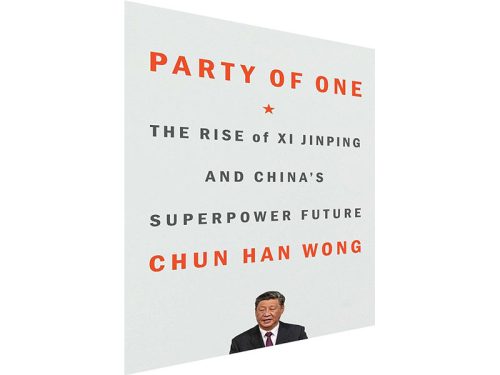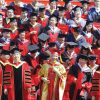Core Leader Biography
 Party of One: The rise of Xi Jinping and China’s superpower future
Party of One: The rise of Xi Jinping and China’s superpower future
Chun Han Wong
Simon & Schuster
Rs.2,490
Pages 416
If Chairman Mao taught China how to stand up and Secretary Deng Xiaoping how to walk, Xi’s ambition is to make it run and transform China into a superpower
Despite being at the helm of affairs in China for more than 12 years, Xi Jinping is still somewhat of an enigma for the world and perhaps even for a large number of people within China.
Xi became General Secretary of the Communist Party of China (CPC) in late 2012 and then China’s President and Chairman of the Central Military Commission in March 2013. At that time, he was regarded as a pragmatic leader who would continue to honour the Party’s evolving and still young tradition of collective leadership. However after assuming power, Xi assumed a different character altogether and has become a type of leader that no one saw coming.
One of the popular monikers for Xi Jinping is ‘Chairman of Everything’ since he has inserted himself at the helm of all important offices, created new oversight bureaus that report directly to him, and has reduced the powers of the prime minister and other members of the State Council.
Chun Han Wong, the author of this book and a Singapore national, was a reporter of The Wall Street Journal in Beijing from 2014 until 2019. He was denied renewal of his press credentials for writing a story about an investigation by Australian agencies into a gambling and criminal nexus involving an individual named Ming Chai, who turned out to be one of Xi Jinping’s cousins.
China lacks written rules on leadership tenures in absolute sense of the term. What it has are vague norms about peaceful and predictable transfer of power developed over the last 30 years and most of these were set in place under the guidance of Deng Xiaoping, who was China’s last paramount leader.
All that has been disrupted by developments over the past few years under Xi Jinping. In 2016, Xi assumed the title of Core Leader and didn’t appoint a successor as required. On the contrary, the Party proceeded to remove the presidential term limit which meant that far from retiring after two terms, Xi could remain in power ad infinitum.
The book begins by discussing Xi’s carefully chosen career path wherein he served tenures in the countryside, with the PLA, and then in important provinces. While this coverage is good, it is relatively short. One expected to read more about the career trajectory of Xi before he rose to centerstage, simply because there is not much authoritative work on Xi’s early career and life.
Interestingly, the author argues that Xi’s stints in the provinces of Fujian and Zhejiang were relatively unremarkable and several of his ‘successful’ policy interventions were actually failures presented as successes as part of propaganda after Xi was confirmed as the designated successor to Hu Jintao in 2008.
However, what Xi learnt during this period was how corruption was undermining China’s growth as well as the Party’s legitimacy. This awareness manifested in Xi’s initial major policy decision in Beijing, when he undertook the most widespread anti-corruption campaign anywhere in the world within six months of assuming power.
In popular terms, if Mao taught China how to stand up and Deng how to walk, then Xi’s ambition is to make it run and achieve its dream of transforming into a superpower. However, as Party of One shows, it is doubtful whether Xi can indeed do this as evidenced by botched Covid-control measures which have depressed not only the economy but also public spirit in general.
Moreover, Xi’s effort to control business and industry through ‘top-level design’ is stifling creativity, innovation and risk-taking. This is exemplified in the way the Ant IPO was handled, Alibaba was fined for anti-competitive practices and the way DiDi was forced to delist from Wall Street.
There is also considerable detail on how the academic environment has been silenced in China under Xi during the past decade. For long, it was said of China that it has “an open society and closed government”. However, that may not be true anymore as government wants to control the narrative at all levels, including academic freedom. Whatever of it existed, has quite vanished. It started with the Party setting out to ‘correct’ history narratives and stop “historic nihilism”, and has ended up in silencing academic voices and independent enquiry.
There are a few complaints about this excellent book. To begin with, there’s a fair bit of repetition; for example, the situation in Xinjiang appears in chapters on ideology, economy, foreign policy, and so on. Second, the section on Singapore and its political history feels out of place in the chapter on Wolf Warrior diplomacy and was probably included because of the author’s nationality. Lastly, while it discusses what Xi Jinping is doing, it does not adequately explain why he is doing the many things he is doing. Some explanation was needed.
Despite these shortfalls, this book is a great and easy read. The author’s experience as a journalist shows in this lucidly written biography which will be of great value for anyone interested in China’s trajectory in several fields including economy, state-society relations, nationalism, media and foreign policy. It should interest academic as well as non-academic readers.
Avinash Godbole (The Book Review)

















Add comment